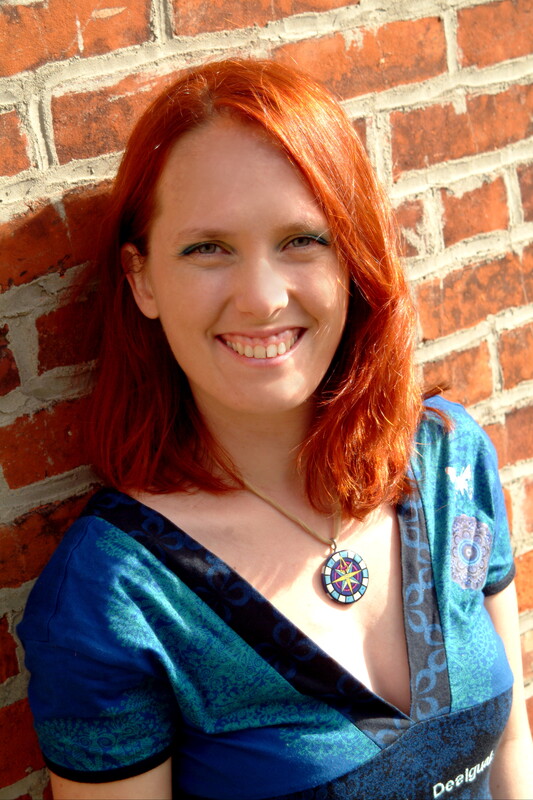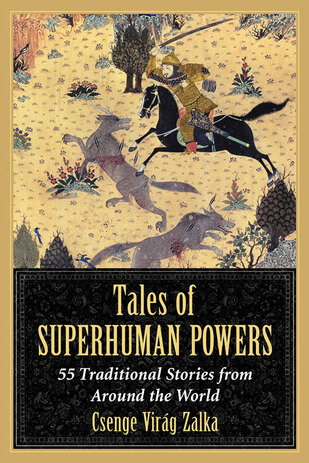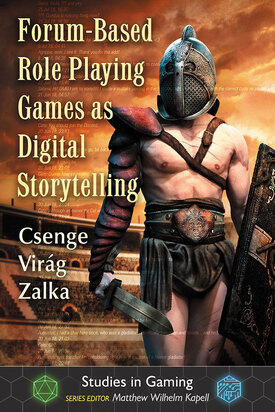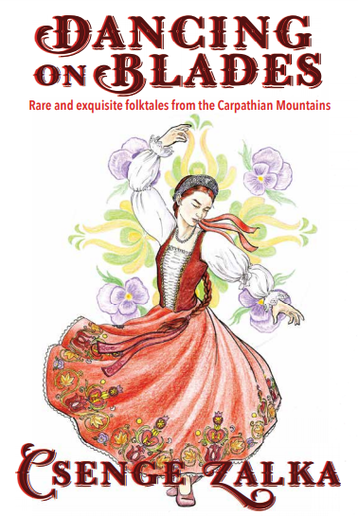In the past few years you have published several books, been an active contributor in academic circles, and engaged a large audience through social media. Do you set a strict schedule to maintain this level of productivity or do you find other ways to sustain your work? I have a bullet journal. It is not very decorative, but it is great for making checklists, and I like checking things off (yeah, I’m an overachiever). I read a certain amount of stories each day with my breakfast, and most of my blogging and social media posts are scheduled for specific days. It also helps that I do a lot of the storytelling research purely for fun. Sometimes I just feel like looking up folktales about a topic, or from a place, and I enjoy going down the research rabbit hole. It’s one of the things I do for fun. "I have a bullet journal. It is not very decorative, but it is great for making checklists, and I like checking things off..." Your work on folktales from around the world spans both continents and centuries. Is this work driven primarily by personal passion or do you hope that your translations become contributions to the ever evolving conversation on globalization? It is mostly personal passion. I love learning about cultures through their stories. I started the “Following folktales around the world” reading challenge a few years ago, and I still have about 40 countries left to read folktale collections from! As for contributions: With my books I hope to bring Hungarian folktales to English-speaking audiences and storytellers, because they are not very well represented on the English language folktale market. On the flip side, I translate a lot of tales into Hungarian so that Hungarian audiences can have access to them as well. "With my books I hope to bring Hungarian folktales to English-speaking audiences and storytellers, One of your first books was Tales of Superhuman Powers: 55 Traditional Stories from Around the World. Today more than ever, North Americans are flocking to the theater to watch movies about superheroes and traditional story-telling media, such as comic books and graphic novels, are becoming popular again. Given your work in this field, what do you think draws people to stories about superheroes? Is it human nature? Is it a part of our mythos or culture? Is there perhaps something psychological at work?
"My personal favorite thing about these “superhero” tales is teamwork. Earlier this year you released a book titled Forum-Based Role Playing Games as Digital Storytelling in which you describe an emergent form of digital storytelling facilitated through online platforms. Through this experience you discovered “a subculture of unbound creativity” as people wrote novel length descriptions of fictional characters and experience that they lived through these digital worlds. As a professional story-teller yourself, what drew you to engage with and study these emerging communities?
And the stories that come out of it stay online, and you can go back and read them for fun, or out of nostalgia. There are sites where I have been active for 8-10 years, and the stories still keep surprising and entertaining me. I love creating them in cooperation with others, rather than just writing things alone. In your 2018 publication Dancing on Blades: Rare and Exquisite Folktales from the Carpathian Mountains, you translate the tales of Anna Pályuk, a Rusyn woman who married into a Hungarian family. I find myself challenged by the task of ‘crossing cultures’ as I work with Icelandic source material from a different culture and time. How did you preserve the essence of Anna Pályuk’s stories while translating them for a modern reader? Were there any guidelines or strategies that helped to guide your process?
Joseph Campbell believed that common connections existed between stories from many parts of the world and summarized some of the key aspects of those similarities in what he called the Heroic Journey. Do folktales from around the world share much in your experience or have you found them to be highly distinctive to the culture they were first told in? I have a bone to pick with the Hero’s Journey. For one, it only fits a sub-category of folktales, usually known as wonder tales or fairy tales. The more one digs into different kinds of traditional stories, the less the theory holds up. Plus, as a storyteller, I tend to focus on how the story is embellished, rather than the basic plot. A lot of tales can be boiled down to “someone gets into trouble, then gets out of it”, but let’s be honest, that is not what makes one tale more compelling than another. There are tale types that exist all around the world, but I only ever really liked one or two variant of them and the rest just didn’t click, because of small details. "The more one digs into different kinds of traditional stories, the less the theory holds up. Where can readers find more of your work and stay up to date on your latest publications? I regularly blog through my website and I have a professional Facebook page. You can also follow me on Twitter.
0 Comments
|
AuthorJoshua Gillingham is an author, editor, and game designer from Vancouver Island, Canada. Archives
April 2022
Categories
All
|





 RSS Feed
RSS Feed
